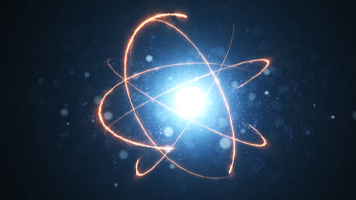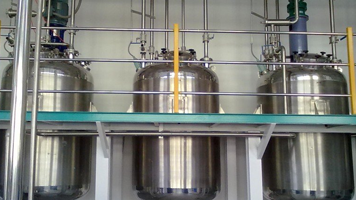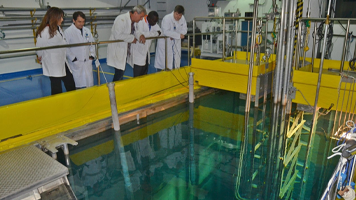In recent years, the Reactor Engineering area has sought to gain knowledge in the development of computational codes applied to engineering problems. In this way, the following topics were prioritized.
- Transport Phenomena;
- Thermo-elastoplastic analysis of structural components;
- Numerical methods such as finite elements, finite differences and numerical time integration algorithms for solving convective problems.
- Inverse problems in diffusion and transport.
With a deep knowledge of these topics today, the area of reactor engineering has developed for COPESP a first computational code for simulating the primary and secondary circuits of pressurized water reactors.
This code is a real-time thermohydraulic simulator of industrial facilities, with an emphasis on nuclear power plants, intrinsically possessing an intelligent control structure, which allows simulating the various transients, modifying the installation configuration when necessary. The primary phase is completed and has already allowed us to visualize the superiority of the product developed at PEN in relation to the existing similar ones.
In view of these results, a second version of this simulator is in progress, aiming at its application to other thermohydraulic processes of interest. It is also expected that this experience will give rise to the development of other codes in the area of structural analysis.
New mathematical and numerical methods are being researched for the development of robust algorithms for the solution of algebraic systems that result from the regularization of inverse problems within nuclear engineering, such as the source reconstruction and parameter identification problems related to material properties.
In summary, it can be said that research in the area of Reactor Engineering has sought:
- Develop the required basic sciences, with in-depth knowledge of them;
- Apply this knowledge to the country’s technological development;
- Train qualified professionals who have the knowledge and know how to apply it to technological processes of interest to the country.
The great importance of the implemented scheme is that, in addition to the basic training that masters and doctoral students are acquiring, the area hopes to train complete professionals who have the knowledge and know how to bridge the gap between basic sciences and their applications in engineering.























